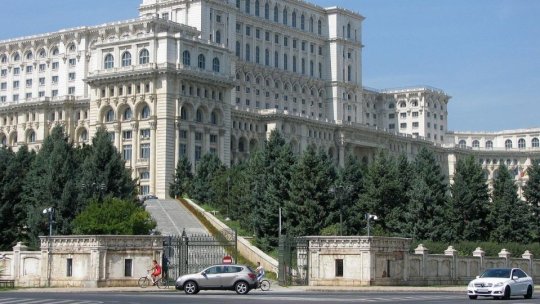Towards a New Motion of Censure
The Romanian parliamentary parties opposing the current ruling coalition are preparing to launch a new attack and are ready to use the entire arsenal of parliamentary procedures at their disposal.

29 Octombrie 2010, 21:04
The motion of censure launched this week by the Social Democrats, the National Liberals and the Conservatives against the ruling forces was not passed by parliament. However, the current Government, made up of the Liberal Democratic Party, the Democratic Union of Ethnic Hungarians in Romania and the National Union for the Progress of Romania, could once again come under attack. On Thursday, the Executive took responsibility for the controversial Education Law.
According to the Constitution, this allows the opposition to bring forward another motion of censure on this law. Should the motion of censure over the Education Law pass, the cabinet led by Liberal Democrat Emil Boc will be dismissed. A rejected motion would imply the adoption of this law. However, responsibility for the law and the censure motion following it are variables in an unclear equation, given that there is no certainty that the government’s assumption of responsibility was a legitimate action.
The Constitutional Court will make the final decision, to be announced no earlier than next week. In other words, the Government took responsibility for the law in front of Parliament before receiving validation from the Constitutional Court. The previous motion of censure forwarded by the opposition received 219 votes for and 236 against.
However, the Social Democrats and National Liberals are confident of greater success this time. They explain that, unlike the first motion, which was strictly political, the second one looks at, quote “the future of our children”. Liberal vice-president Eugen Nicolaescu revealed that the motion will make reference to violations of the Constitution and the current legislation, concerning the infringement of students’ and teachers’ rights, as well as the limiting of the autonomy of universities.
Education unionists also objected to several articles in this law, chiefly those related to moving the 9th grade from secondary school to gymnasium, earning tenure and the membership of boards of directors. In short, education employees wish for the outdated and unproductive system to be reformed, but do not agree with many of the new law’s stipulations. Teachers are displeased that the Government did not consult them and did not submit the bill to public debate. As a sign of protest, teachers from several schools have already gone on strike and await large-scale union-led protests.









